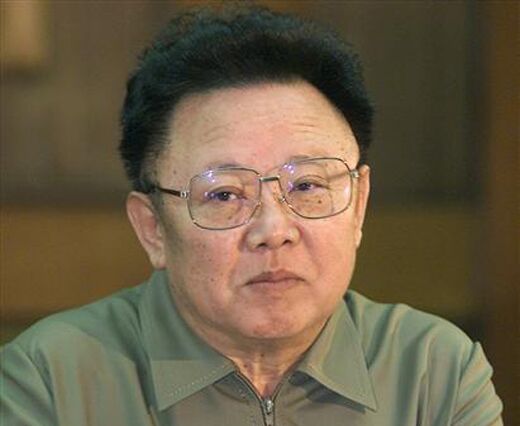
North Korea Sets Off Fireworks
Not wanting to miss out on the fun, North Korea’s Kim Jong Il got in on the action of Independence Day on Tuesday and launched seven missiles, including one long-range Taepodong-2 rocket, of his own.
Though Kim Jong Il’s rockets didn’t match the beauty of America’s nighttime firework shows, his July 4 skyline display is bound to have the largest and longest-lasting impact. Beyond alarming U.S. officials on what was supposed to be a national holiday, North Korea’s strategically timed missile launch will have a defining impact on America’s global image.
There’s little doubt that U.S. officials were relieved when North Korea’s 9,300-mile-range Taepodong-2 missile fell from the sky only 42 seconds after it was launched. But that relief has since given way to anxiety with the realization of this unsavory fact: Kim launching these missiles even while facing massive pressure from America over his nuclear program reveals a clear and present lack of fear and respect for U.S. power. Now this is something to worry about!
North Korea’s fireworks display was not only meant to test the quality of the nation’s rockets—but also to test the willpower of America. It is expected that Kim Jong Il will launch more rockets of rebellion over the next few days.
You are watching a defining moment in America’s relations with North Korea.
Every missile fired is further proof that North Korea is totally prepared to defy U.S. designs on the nation. The most important question now is: How will the United States react to North Korean boldness? Is America prepared to back words with action?
Action or inaction on behalf of America will reveal the answer to these questions in the coming days and months. As it unfolds, this situation is being carefully observed by various states around the world. Russia, China, Iran, Central Asia, the Taliban—every one of these governments and groups is observing America’s response, watching to see if the American government is prepared to add real meaning to its rhetoric by supporting it with decisive action.
This is why this is a decisive moment for the U.S. A definitive response by the American government sends the message that it is a power still to be feared and respected. A failure to deal decisively with North Korea beams the message that the words of the greatest government in the world can be ignored without repercussions.
Consider the situation. Geographically, North Korea is smaller than the state of Mississippi; its economic destitution is on par with Zimbabwe; and it carries about as much geopolitical influence as the Chukotskiy Avtonomnyy Okrug province in Russia. The only reason North Korea garners more international recognition than Comoros or Senegal is that it is governed by a madman (or so he would have us believe) with aspirations for nuclear weapons.
In terms of power, there is no comparison between North Korea and America. It just doesn’t make sense that this seemingly irrelevant nuisance should be causing the world’s greatest power so much trouble. The fact that the U.S. cannot deal conclusively with Pyongyang highlights the nation’s broken willpower and subsequent inability to harness its awesome power to solve serious crises. The U.S. possesses the physical components needed to resolve this crisis; but it lacks the mental and spiritual leadership and fortitude to use them. America’s stalemate on the North Korea issue is a direct result of weak leadership.
This fact is becoming plainly evident to anti-American states and groups around the world.
It is highly unlikely that America will deal decisively and conclusively with North Korea after its recent fireworks displays. What will most likely happen is that America will spend the next few months “negotiating” and toying around with Pyongyang. Afraid to act unilaterally, Washington will probably recruit assistance from the United Nations, requesting that this bureaucratic beast impose sanctions on the already isolated and dirt-poor nation of North Korea. All the while, as is the case with Iran, North Korea will take advantage of U.S. naivety, gain further concessions and continue building weapons and manufacturing nuclear material.
As the Trumpet has forecast, it is also highly likely that America will largely turn the problem over to Pyongyang’s neighbors in Japan, China and South Korea. These nations are also concerned (to various extents) with North Korea’s weapons and nuclear program and are likely to welcome Washington’s reliance on them for support in managing their roguish neighbor.
By palming off its responsibilities toward North Korea onto Japan and China, America will not only grow more distant from Asian politics, but it will also dress Beijing and Tokyo with more power and influence in the region and internationally. Bible prophecy tells us that in the coming months and years the entirety of Asia will pull together behind the leadership of the region’s most influential states.
If you are interested in learning more about Asia’s future, please read Russia and China in Prophecy.
